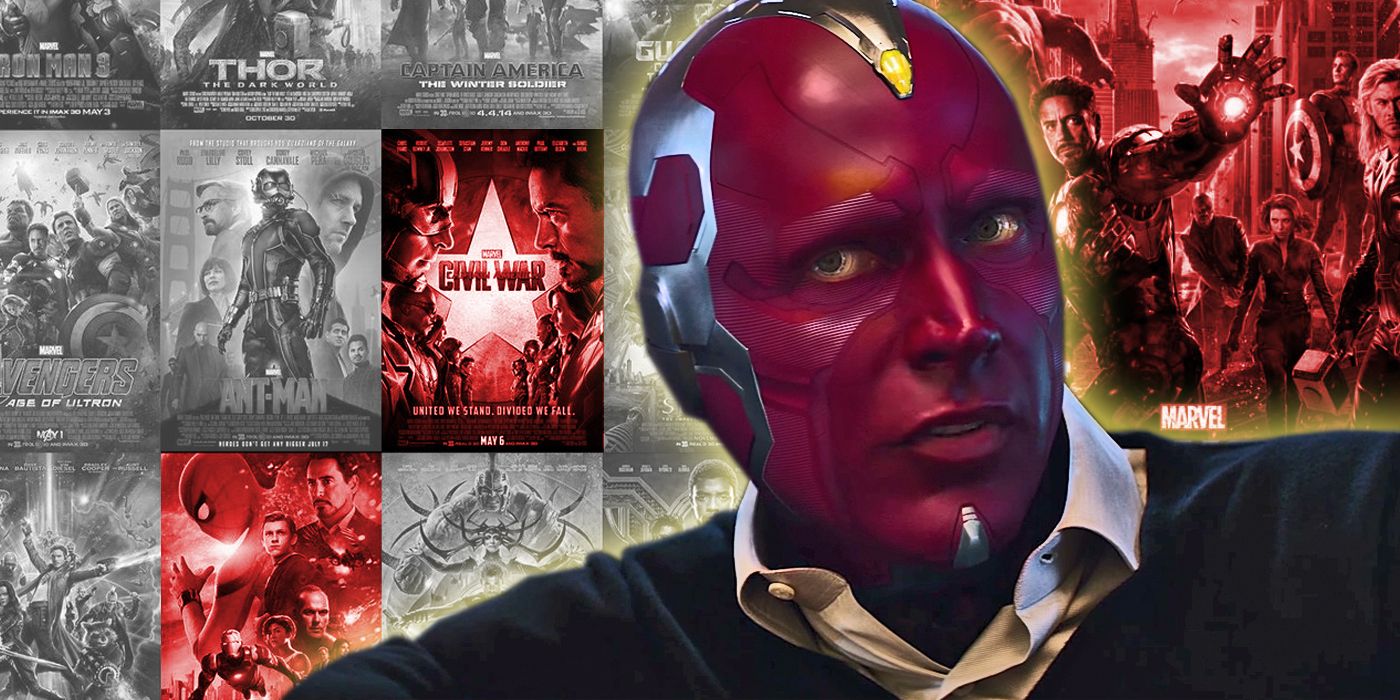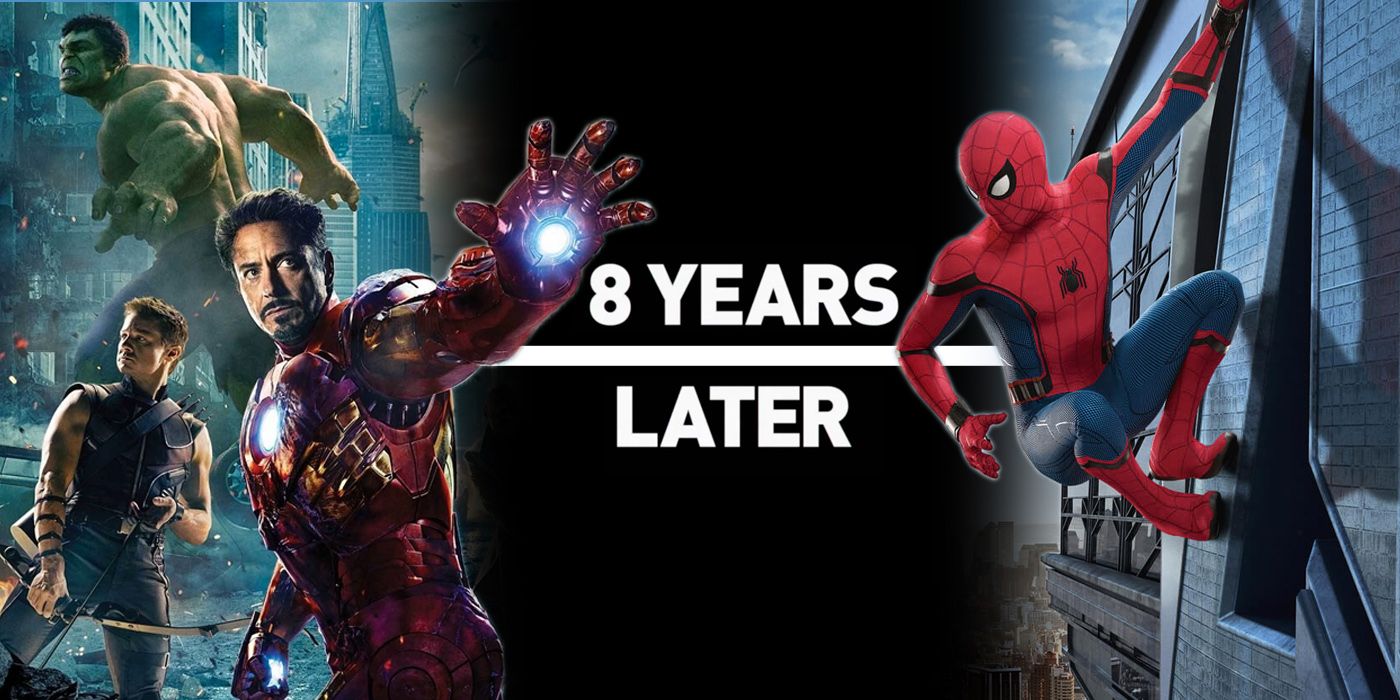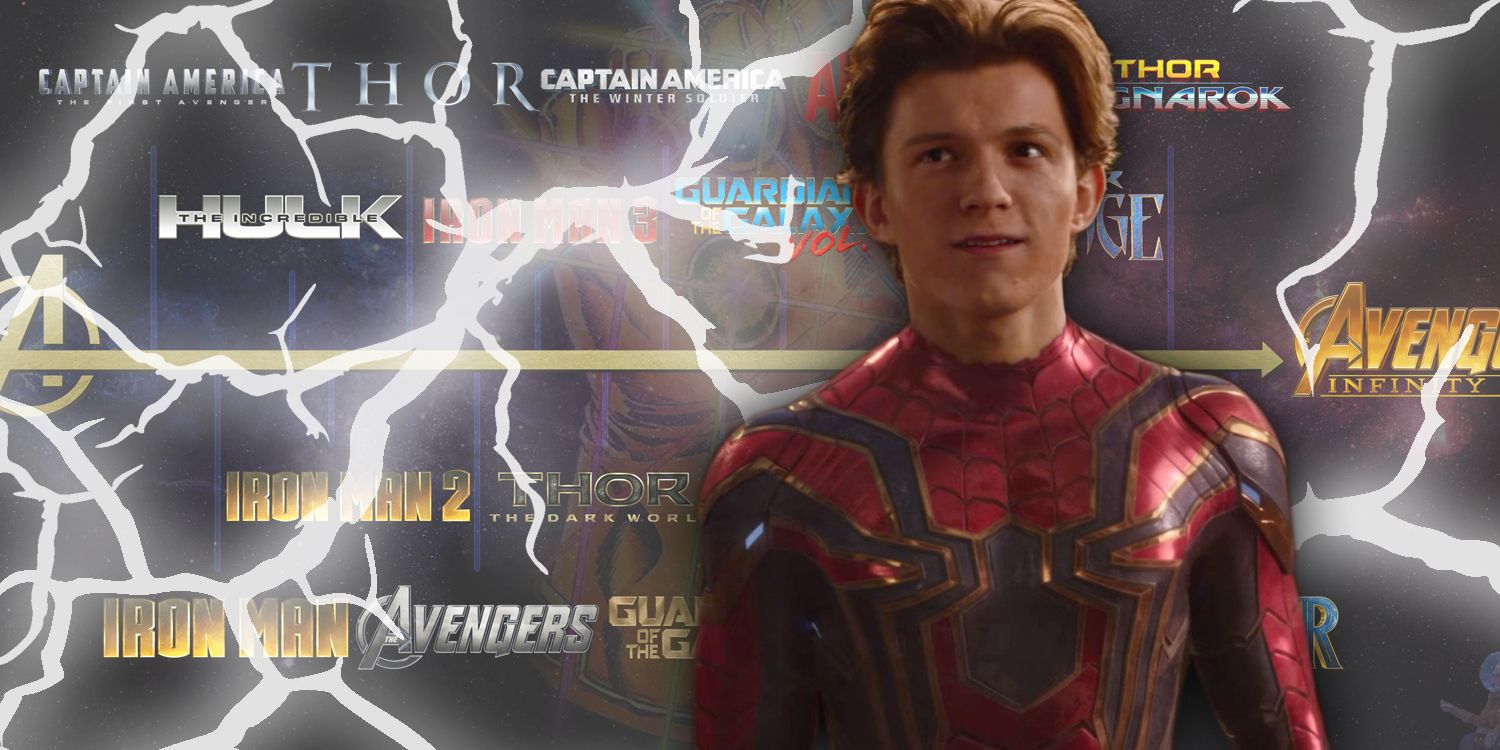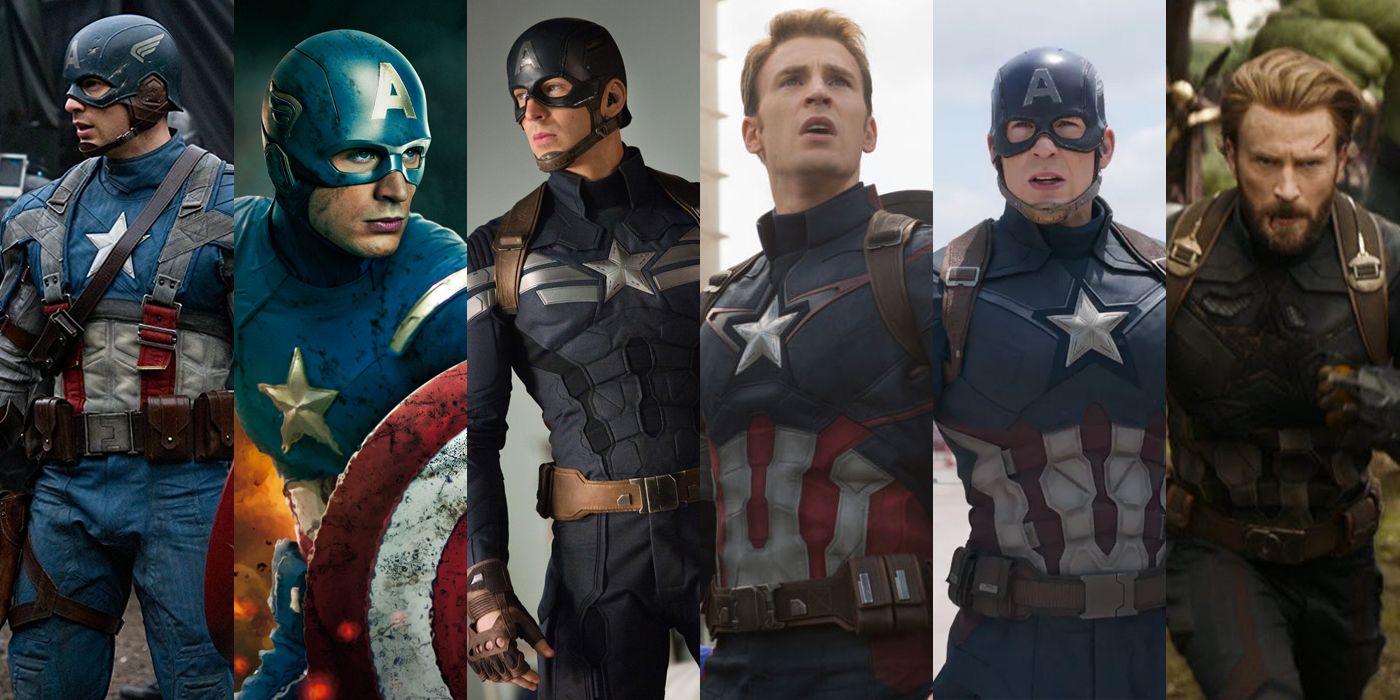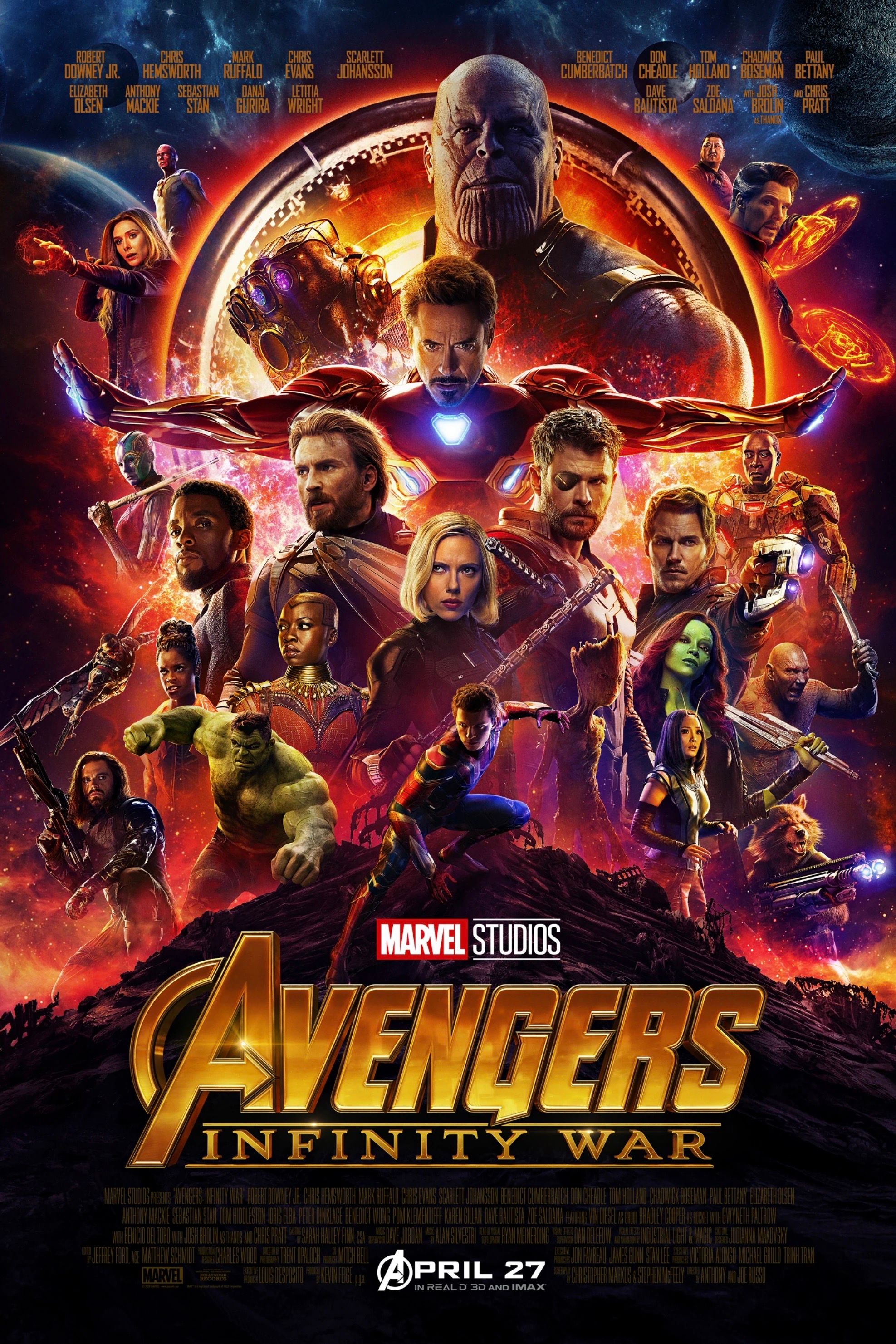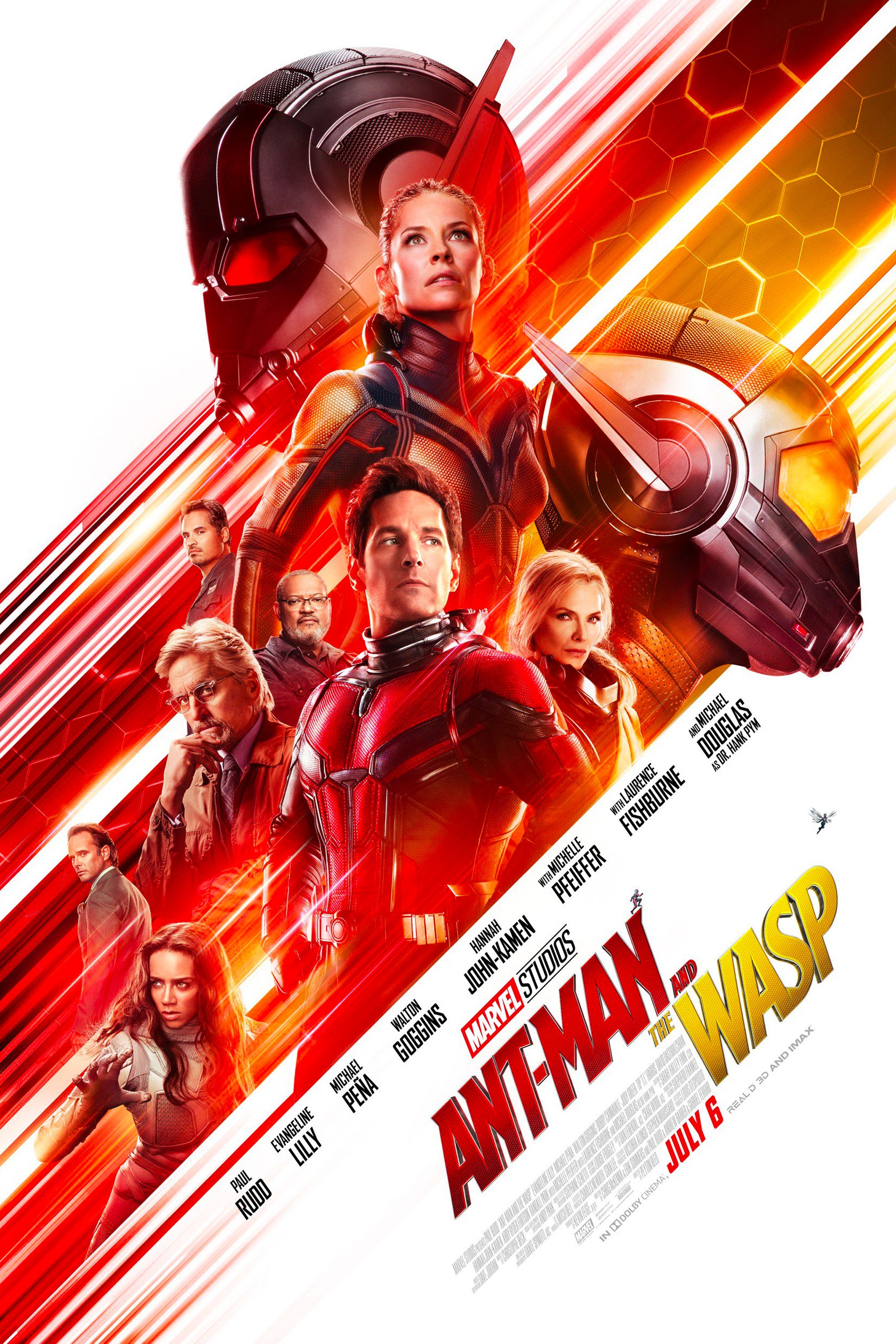It's well known that the Marvel Cinematic Universe timeline doesn't make sense, but here's the proof that it's not just broken: the Marvel continuity is unfixable without a major retcon. And, while that may seem like a problem for a franchise sold on its careful connections, it's not actually a damaging aspect.The entire premise of the MCU from the moment Nick Fury walked out of the shadows at the end of Iron Man has been that we're in a cohesive shared universe. Each movie and "sub-franchise" forms a small part of a bigger world, eventually stacking to tell a story hitherto seen in the history of film. That has worked wonders in a broad sense: audiences and critics have raved about nearly all Marvel entries, and together they make the highest grossing franchise of all time. But if you dig deeper, things don't quite line up.Related: Predicting The Next 20 MCU Movies After Avengers 4The commonly-cited rift point is Spider-Man: Homecoming, which said it was set eight years after the Avengers despite that contradicting the accepted situation, but contradictions had existed for the preceding few movies (and that's discounting the TV series, which intermittently react to events in the movies but are developed too much in isolation to properly line up). You can list an easy-enough flow of events that's at least chronological but the dates and specifics don't line up.That hasn't stopped fans from trying. Every week it seems there's an MCU die-hard presenting their solution on Reddit that allegedly fixes all the problems. Except they don't: dig deeper and to account for the most recent turn, they've usually created two more plot holes earlier in the continuity. This invariably happens because the task they've taken on is unworkable. No matter what's promised by those involved - Kevin Feige says an official timeline will be released - here's the proof it's impossible to fix the Marvel timeline.This Page: The Marvel Timeline Cannot Be Fixed
Proof The Marvel Timeline Cannot Be Fixed
It used to be that every Marvel film was, unless explicitly stated otherwise, set in its month of release. However, with certain movies like Captain America: Civil War becoming nexus points from which movies year later directly follow on from and the entirety of Phase 3 out of order, that can't be assumed. As such, we're going to put that aside and craft the timeline just from what's in the movies.
Working forward from Iron Man, Fury's Big Week (Iron Man 2, The Incredible Hulk and Thor all happen at the same time) is the summer after (Iron Man 2 is set in May, evidenced by Tony's birthday, and is six months minimum on from the "I am Iron Man" reveal). The Avengers likewise says Fury's Big Week took place a year before, and as that appears to be Summer, that puts it two years on from Iron Man (Captain America: The First Avenger's modern sequences are in between). With Iron Man 3 we get the first explicit dating in the movies: it's set at Christmas 2012 (thirteen years after New Year's Eve 1999). As it's also set months after The Avengers, we can place the prior movies in 2010 and 2011. In conclusion, Phase 1 all makes sense.
Related: The Best MCU Rewatch Order For Before Avengers: Infinity War
To place the other films requires some backward logic. Captain America: Civil War is set four years after The Avengers (per General Ross), placing it in 2016, and from the hunt for Bucky (Cap and Falcon had been looking for a year in Age of Ultron and two by Civil War) that puts The Winter Soldier in 2014 and Avengers 2 in 2015. Thor: The Dark World doesn't have any specified link but can be any time between 2012 and 2014 (presumably Fall 2013, again its release period). From Civil War, we can place Black Panther in Summer 2016 and Spider-Man: Homecoming in Fall 2016 (both follow on directly from Captain America 3). Thor: Ragnarok is two years after Age of Ultron per Hulk's time on Sakaar, placing it in 2017.
Rounding things off, Doctor Strange spans an unclear amount of time before Ragnarok, Guardians of the Galaxy Vol. 1 & 2 are both in 2014, and four years before Avengers: Infinity War in 2018. Rounding off what's known of movies yet to release, Ant-Man & the Wasp is between Civil War and Infinity War, Captain Marvel's in the 1990s (presuming it isn't in an alternate MCU timeline altogether), and Spider-Man: Homecoming 2 picks up after Avengers 4 (which as a time travel movie could be anywhere). That is the MCU, plainly built from in-universe references. Simple.
Except within the movies, there are also references that contradict. Namely, in Civil War, Vision says it's been "eight years since Mr. Stark announced himself as Iron Man", then in Homecoming a title card states it's "Eight Years Later" from The Avengers aftermath; it should be six and four years respectively. Even if we go to the maximum deviation possible (that in both cases the movies are rounding to 8 years and thus could take place between 7.5 and 8.5 years from the cited events), it can't fit: there's simply too much space between film. Solutions tend to try and push back Phase 1 and shift Phase 3 up, in the process stretching the placement of Phase 2, which even if it can be contrived to not break everything already discussed, can't actually resolve both "eight-year" problems. There's no way to make Iron Man and Avengers within one year of each other (the maximum deviation say Homecoming can at least be 7.5 years after The Avengers and Civil War at most 8.5 years after Iron Man), and so it cannot be consolidated.
The MCU timeline mostly works, but not completely. It is broken, no two ways about it.
Why The Timeline Is Broken
Before looking at why this broken timeline is - for all its unavoidable existence - not a problem, we must first understand why it is like this in the first place.
Ultimately, it's the result of simply making a shared universe. Even in the early days, Marvel were actively working on a half-dozen movies in various states of development, and now they're up to three movies a year that's ballooned: there are five slated films, two more we know about, and likely just as many in the pipeline (films are dated up to 2022). That's already a lot of moving pieces before you work in the practicalities of franchise moviemaking: as one releases, another is finishing shooting, another starting and so on. When you have that many projects, each with the primary purpose of telling a good, standalone story, some contradictions are inevitable. A change in one has a knock-on effect to all the others, but at the same time that can't always happen.
Read More: Spider-Man Is The Root Of Marvel's Timeline Problems
This is best seen with Spider-Man. The Sony-Marvel deal to share the character didn't have much of a damaging impact on Captain America: Civil War due to the screenwriters having two versions of the script in development - one with and one without Peter Parker - but long term it shook up Phase 3. Spider-Man: Homecoming changed the release plan, pushing Thor: Ragnarok and Black Panther back and introducing a key new element in Infinity War. However, that doesn't really hurt story (Avengers 3 was in early stages when the deal happened). The real problem came from introducing a Generation Z Spider-Man; for him to be inspired by the Avengers, everything needs stretching. That's surely not the entire picture, but it represents it.
Marvel's Character Continuity Works
For all we've done to show and explain the broken timeline, none of this should be taken as a criticism of the MCU or its storytelling. In fact, that these exist serve as an ideal example of creative compromise to build a better whole. While the mechanical specifics of the Marvel timeline makes no sense, the narrative flow within it, and particularly the myriad of character arcs, do. You can trace the story from Iron Man to Infinity War and find few genuine contradictions; we have questions about the "when?" but not the "what?", "why?" or "how?".
Like with Marvel's oft-cited villain problem or sometimes-formulaic narrative structure, everything is done in service of the heroes. That's how they took Iron Man from B-list to go-to billion-dollar raker, Captain America from presumed propaganda into bastillion of good, the Guardians of the Galaxy from basically nothing to new-age Star Wars. And while casting, characterization, marketing and good standalone movies are all essential, it's the way it grown over time that's been so important. This has been at the core of the MCU since conception, and in that regard the continuity of the MCU is pitch perfect. Captain America's evolution from well-meaning everyman to renegade by way of man-out-of-time is a standout, but even the little turns that feel strange - Tony Stark goes from giving up his suits at the end of Iron Man 3 to being back in action come the start of Age of Ultron - still fit into the characters' broader arcs.
This is the distinction between plot and story. The former is basic events, but the latter is the method by which it's told and what it overall means. If you have to smudge the plot a little to get to a better story (something Black Panther did with Bucky), then it's often a worthy sacrifice. Marvel's timeline problems exist - there's no getting around that - but that's OK because they're in service of something bigger.
Next: Where Is The Soul Stone? We Round Up The Best Avengers: Infinity War Theories

